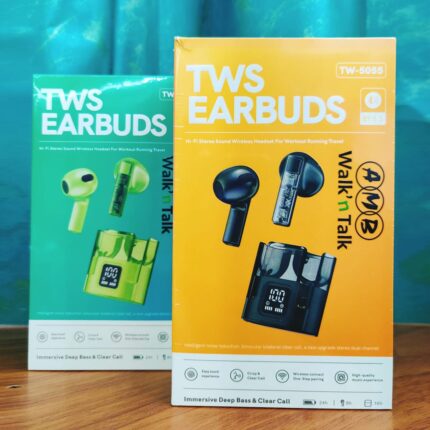Understanding Bluetooth Technology: The Backbone of Modern Wireless Communication

Bluetooth technology has become an integral part of our daily lives, enabling seamless wireless communication between a plethora of devices. From wireless headphones to smart home systems and health monitoring gadgets, Bluetooth has transformed the way we interact with technology. This article delves into the history, applications, benefits, and future of Bluetooth technology, highlighting its crucial role in modern connectivity.
The History of Bluetooth Technology
The conception of Bluetooth technology dates back to the late 1980s when engineers at Ericsson, a Swedish telecommunications company, sought an alternative to the cumbersome RS-232 data cables. The idea was to create a universal standard for wireless communication between various devices.
The Birth of Bluetooth
In 1998, the Bluetooth Special Interest Group (SIG) was established by Ericsson, IBM, Intel, Nokia, and Toshiba to develop and promote the new technology. The technology was named after Harald “Bluetooth” Gormsson, a Viking king who united Denmark and Norway, symbolizing the unification of communication protocols. The first Bluetooth specification, Bluetooth 1.0, was released in 1999, marking the beginning of a new era in wireless communication.
Evolution Over the Years
Bluetooth technology has evolved significantly since its inception, with each version bringing new features and improvements:
- Bluetooth 1.0 and 1.1: Provided basic wireless connectivity but faced interoperability issues.
- Bluetooth 2.0 + EDR: Introduced Enhanced Data Rate for faster data transfer.
- Bluetooth 3.0 + HS: Added high-speed data transfer capabilities.
- Bluetooth 4.0: Introduced Bluetooth Low Energy (BLE), ideal for low-power applications.
- Bluetooth 5.0: Improved range, speed, and broadcasting capacity, supporting advanced IoT applications.
- Bluetooth 5.1 and 5.2: Enhanced features like direction finding and LE Audio for superior audio performance.
Applications of Bluetooth Technology
Bluetooth’s versatility has led to its widespread adoption across various domains, enhancing functionality and user experience.
Personal Electronics
Bluetooth is indispensable in the realm of personal electronics, offering seamless connectivity between devices.
Wireless Audio
Bluetooth-enabled headphones, earphones, and speakers have become ubiquitous, providing high-quality audio without the hassle of wires. The convenience of wireless audio has revolutionized how we listen to music, watch movies, and engage in handsfree phone conversations.
Mobile Devices
Smartphones, tablets, and laptops use Bluetooth to connect to peripherals like keyboards, mice, and printers. This wireless connectivity enhances productivity and convenience, making it easy to set up and use devices in any environment.
Automotive Integration
In the automotive industry, Bluetooth technology enhances both safety and entertainment.
Handsfree Communication
Bluetooth handsfree systems in cars allow drivers to make and receive calls without taking their hands off the wheel. This reduces distractions and promotes safer driving habits.
In-Car Entertainment
Bluetooth enables wireless streaming of music and other media from smartphones to car audio systems, providing a richer in-car entertainment experience. Additionally, it facilitates navigation and real-time traffic updates, improving the overall driving experience.
Health and Fitness
Bluetooth technology is crucial in health and fitness monitoring, supporting a range of devices and applications.
Wearable Devices
Fitness trackers and smartwatches use Bluetooth to sync data with smartphones, allowing users to monitor physical activity, heart rate, sleep patterns, and more. This real-time data synchronization helps users stay informed about their health and fitness goals.
Medical Devices
In healthcare, Bluetooth-enabled medical devices like glucose monitors, blood pressure cuffs, and hearing aids provide essential health data to patients and healthcare providers. This wireless communication enhances remote monitoring and improves patient care.
Smart Home and IoT
Bluetooth is a key enabler of smart home technology and the Internet of Things (IoT), facilitating seamless device connectivity and control.
Home Automation
Bluetooth smart home devices, such as lights, thermostats, and security systems, can be controlled via smartphones or voice assistants. This wireless control enhances convenience and efficiency in managing home environments.
IoT Applications
Bluetooth’s low power consumption and robust connectivity make it ideal for IoT applications. From smart appliances to industrial automation, Bluetooth connects a vast array of devices, enabling smarter and more efficient operations.
Benefits of Bluetooth Technology
The widespread adoption of Bluetooth technology is driven by its numerous advantages, including convenience, energy efficiency, and enhanced connectivity.
Convenience
Bluetooth eliminates the need for physical cables, providing a hassle-free way to connect devices. This wireless convenience simplifies setup and use, making it easier for users to manage their electronic devices.
Energy Efficiency
Bluetooth Low Energy (BLE) is designed for minimal power consumption, making it ideal for battery-operated devices like fitness trackers and IoT sensors. BLE ensures that devices can operate for extended periods without frequent recharges, enhancing user experience and device longevity.
Enhanced Connectivity
Bluetooth’s ability to support a wide range of devices ensures interoperability and easy pairing. This universal compatibility allows users to connect multiple devices seamlessly, enhancing overall connectivity and functionality.
Security
Bluetooth technology includes robust security features, such as device authentication, encryption, and frequency hopping spread spectrum (FHSS). These measures protect against unauthorized access and ensure secure wireless communication.
Future Prospects of Bluetooth Technology
As technology continues to evolve, Bluetooth is poised to remain a cornerstone of wireless communication, with several promising developments on the horizon.
Bluetooth 5.3 and Beyond
Future versions of Bluetooth will likely introduce further improvements in speed, range, and power efficiency. These advancements will support more demanding applications and ensure that Bluetooth remains a versatile and reliable technology.
LE Audio
Bluetooth LE Audio promises to revolutionize wireless audio with better sound quality, lower latency, and new features like audio sharing and multi-streaming. This will enhance the listening experience and open up new possibilities for audio applications.
Enhanced IoT Integration
Bluetooth’s role in the IoT ecosystem will continue to grow, with advancements in mesh networking and energy efficiency driving wider adoption. Bluetooth-enabled IoT devices will become more prevalent in smart homes, industrial automation, and healthcare.
Improved Security Measures
Future iterations of Bluetooth will focus on enhancing security features to address emerging threats. This will ensure that Bluetooth remains a secure and trustworthy technology for wireless communication.
Conclusion
Bluetooth technology has fundamentally transformed the way we connect and interact with our devices, offering unparalleled convenience and connectivity across various applications. From personal electronics and automotive systems to health and fitness monitoring and smart home devices, Bluetooth is an essential part of modern life.
As technology continues to advance, Bluetooth will remain at the forefront of wireless communication, driving innovation and enhancing user experiences across multiple domains. With ongoing improvements in speed, range, and security, Bluetooth technology will continue to shape the future of connectivity, making our lives more interconnected and efficient.
Embracing the potential of Bluetooth technology means staying ahead in a world where seamless wireless communication is increasingly essential. Whether it’s for personal use, professional applications, or futuristic innovations, Bluetooth will undoubtedly remain a key player in the evolution of technology.



